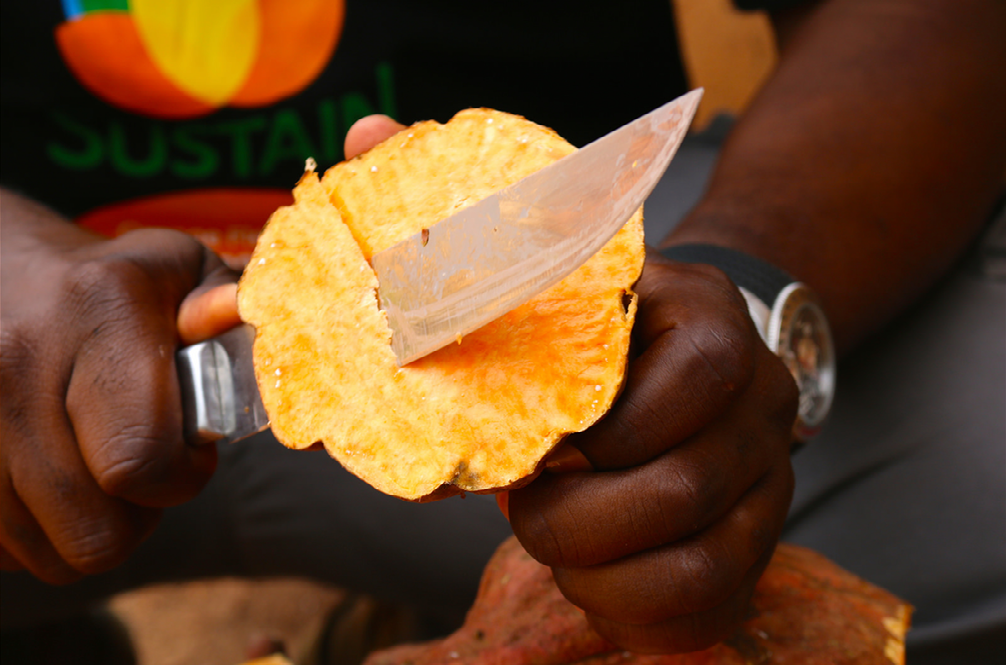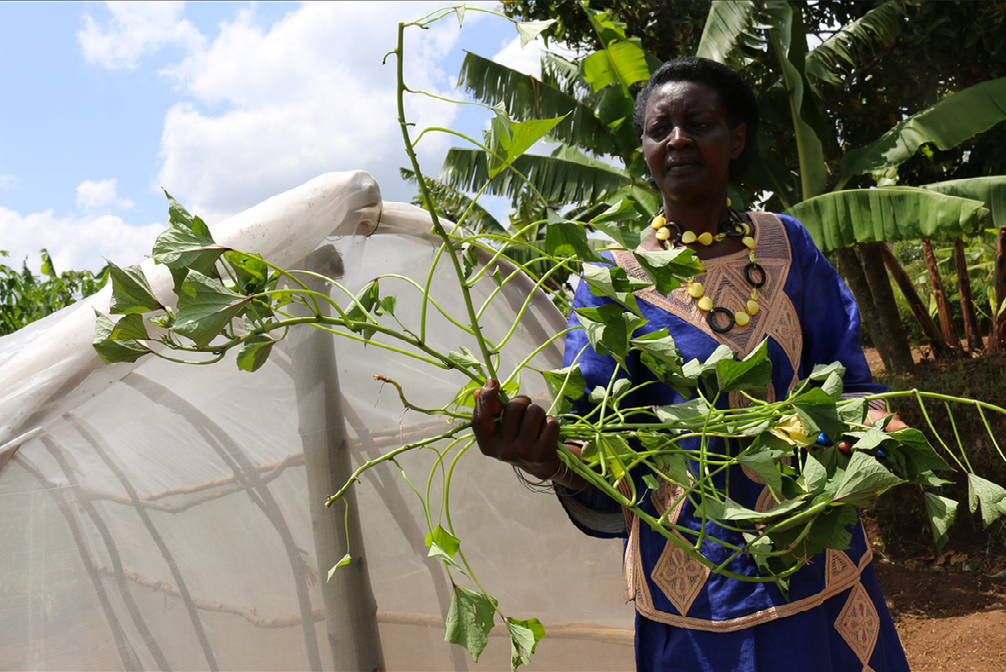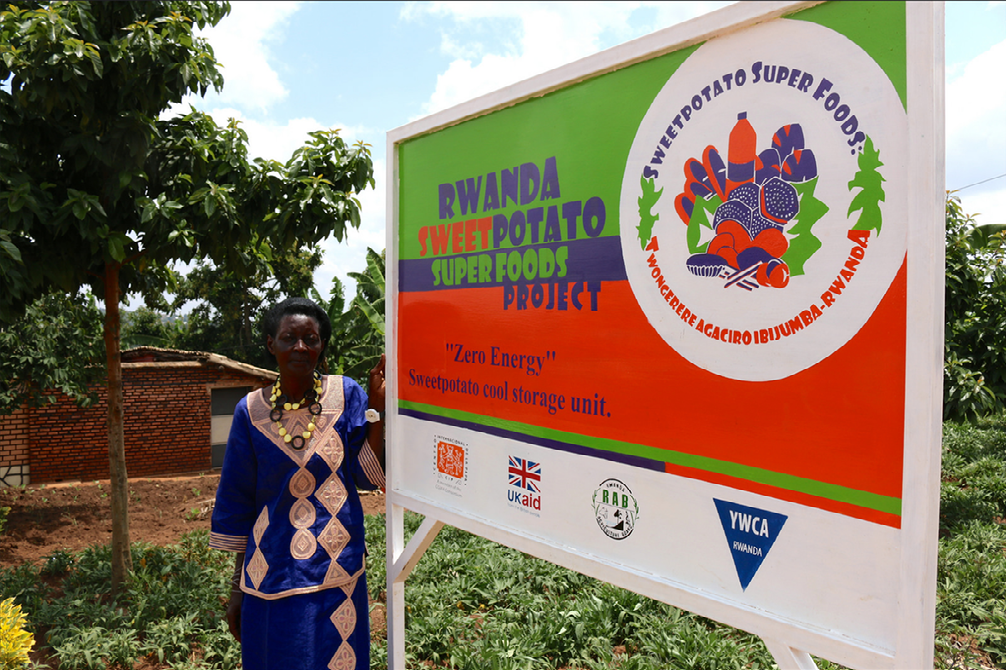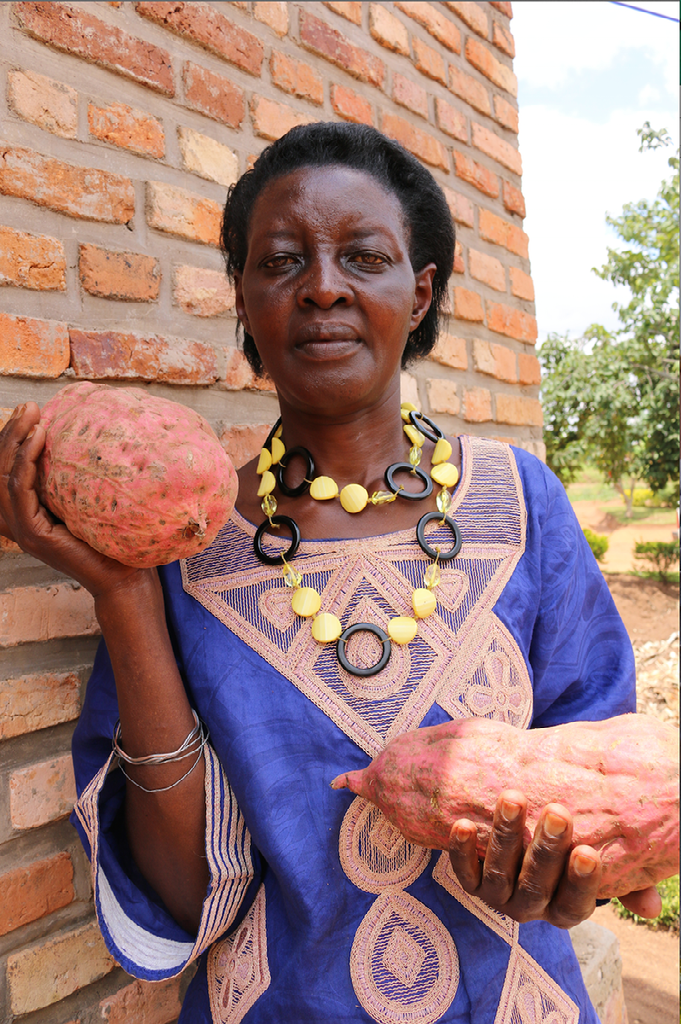This sweet potato storage facility has helped us in a variety of ways. Before we had the storage facility would have mature OFSP roots in the field but we could not harvest it all as we could not sell it all in one day.
With the storage unit we can now store the roots for up to 6-7 months. That means we no longer have that problem of the roots going bad. Rwanda is a small country so we need to manage well the small areas that we have to grow sweetpotato and also other crops like beans. Now we can use the entire land we have to grow sweetpotato, and then harvest them all and put them into storage, and move on to another crop. We also notice that the sweetness of some of the varieties increases a few days after harvesting, so this is nice as well.
It is very encouraging to us that we have this great crop that we can make money from now and in the future, and through which we can improve our lives. For us, we hope in the future that we can expand our land so that we can produce enough OFSP for the demand that we have.
Scaling up Sweetpotato through Agriculture and Nutrition (SUSTAIN) is a five-year partnership (2013-2018) coordinated by the International Potato Center (CIP) and financed by the UK Department for International Development to spread the nutrition benefits of biofortified OFSP to more farmers. The program aims to reach 1.2 million households with children under 5 years across four countries: Kenya, Malawi, Mozambique and Rwanda through mutually-reinforcing incentives to increase adoption of OFSP, consumption of Vitamin-A-rich foods, and diversification of OFSP utilization.






